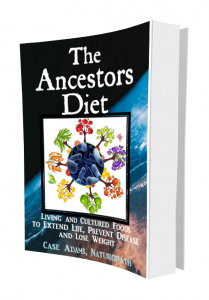ADHD: Vitamins and Minerals

ADHD improved with vitamin and mineral supplementation.
Multiple studies have now confirmed that Attention deficit/hyperactivity disorder (ADHD) in both adults and children can be treated with vitamin and mineral supplementation.
This only makes sense, since minerals are critical for metabolic functions and enzyme reactions that take place within the cells and tissues. This is more pronounced within the nerve cells, where minerals are catalysts for important processes that relate to cognition and attention.
In addition, minerals are critical for our neurotransmitters, which facilitate the electrical pulses that occur between our nerve endings. Neurotransmitters thus relate directly to attention deficit and hyperactivity disorders.
A lack or imbalance of minerals within nerve and brain cells have been shown in numerous studies to produce mood disorders of different types.
In this article
Vitamin and mineral supplementation treats adult ADHD
A 2017 study from New Zealand’s University of Canterbury and University of Otago studied 80 adults with ADHD. For one year, they gave half the adults a multivitamin and mineral supplement. The other half of the adults were given a placebo.
After the year was over, the researchers retested the patients. They found the multivitamin and mineral supplement resulted in significant improvements in symptoms among the ADHD adults compared to the placebo group.
Even more amazing is that during the follow-up period, those who continued with the multivitamin and mineral supplements saw more improvement in symptoms compared to those who switched to medications for their ADHD.
In other words, the multivitamin/mineral supplementation worked better than medication.
“Dominant treatment from the end-of-treatment to follow-up was investigated as a mediator of outcome; those staying on the micronutrients performed better than those who switched to medications or discontinued micronutrients.”
A 2014 study published in the British Journal of Psychiatry investigated 80 adults with ADHD. The researchers gave 42 of them vitamin and mineral supplements and gave the rest a placebo for 8 weeks.
The researchers found those who took the supplements had improved symptoms according to physicians who examined each patient. The researchers concluded:
“This study provides preliminary evidence of efficacy for micronutrients in the treatment of ADHD symptoms in adults, with a reassuring safety profile.”
The 2017 study above, along with the ones below confirm this evidence. And remember, this is with only 8 weeks of supplementation.
ADHD in children also improved with nutrients
Attention deficit/hyperactivity disorder (ADHD) among children is also linked to vitamin and mineral deficiencies according to multiple studies.
In a 2016 study from the University of Oxford, researchers tested 196 children between 13 and 16 years old. They tested their blood levels of several nutrients, and found the kids with behavior difficulties or ADHD had low levels of many nutrients, including omega-3s and omega-6s.
The researchers then gave half the kids nutritional supplements and the other half were given a placebo. The researchers found after 12 weeks, that the group treated with the supplements saw several improvements in their symptoms.
They also found those on the supplements had far fewer disciplinary problems compared to those on the placebo.
In a 2011 study, researchers from Ohio State University and the Nisonger Center found that 30 milligrams of supplemented zinc per day lowered the need for ADHD medication in ADHD children.
The researchers gave 52 ADHD children who were between the ages of 6 years and 14 years old either 15 milligrams of zinc per day, 30 milligrams of zinc glycinate per day or a placebo. The 15 milligrams-per-day children showed little or no difference in symptoms or medication use than the placebo children. However, the 30 milligrams-per-day group of eight children required 37% less medication to achieve the “optimal” dose.
The researchers concluded that the possible reasons for these results include nutritional deficiencies, background nutrition, and absorption issues.
With regard to zinc absorption, some research has shown that zinc glycinate tends to be better absorbed than zinc sulphate, but other research has shown little difference between the glycinate and sulphate forms. Besides, most of these have been animal studies.
Other studies have hinted at mineral deficiencies among ADHD children. A 2010 study by researchers from the University of Iowa College of Medicine found that ADHD was associated with lower ferritin (iron) blood concentrations.
This study also used 52 ADHD children with an average age of 10 years old. Ferritin (iron) levels were lower with greater levels of inattention, hyperactivity and impulsive behavior. The researchers concluded that “these findings add to the growing literature implicating iron deficiency in ADHD.”
Researchers from these and other studies caution against aggressive supplementation strategies of particular minerals. While supplementing one mineral or another might alleviate a particular deficiency, supplementing in an isolated mineral can cause an imbalance with other minerals in the body.
What about food-sourced vitamins and minerals?
Surely, nutritious foods can provide the vitamins, minerals and other nutrients provided by supplements in these studies. However, an issue is that nutrient levels of many foods have fallen during the industrial age. As chemical farming has expanded, nutrient levels of our foods have fallen as soils have become depleted.
Therefore, it only makes sense to make sure that we are getting all the appropriate nutrients with a good supplement, on top of a nutritious whole-food diet. Remember, supplements can never replace whole foods, which provide host of fibers, prebiotics and micronutrients not found in supplements.
The research above not only indicates that vitamin and mineral supplementation can safely help treat ADHD in both children and adults. It also indicates that vitamin and mineral supplementation works better than medications.
So I will ask once again: Is it wise for modern medicine to be prescribing young children medications that have already been found to disturb their young adult years?
Our other articles on ADHD:
Ginkgo biloba Treats Children with ADHD
ADHD Meds Linked to Bone Density Loss in Kids
Low-level Lead and Other Pollutants Causing ADHD
Playing Outside Decreases ADHD Risk and Improves Child Vision
ADHD in Children Linked to Mother’s Pesticide Exposure
Algal DHA Improves Child Memory, ADHD and Reading Performance
Meds for Younger ADHD Kids?
ADHD Linked to the Western Diet
Gotu Kola: A Dozen Proven Medical Benefits
Lemon Balm and Valerian Curb Hyperactivity, Boost Focus for Kids
Two documentaries to consider:
Take Your Pills (2018) – A documentary reviewing the wisdom of ADHD medications.
REFERENCES:
Rucklidge JJ, Frampton CM, Gorman B, Boggis A. Vitamin-Mineral Treatment of ADHD in Adults. J Atten Disord. 2017 Apr;21(6):522-532. doi: 10.1177/1087054714530557.
Rucklidge JJ, Frampton CM, Gorman B, Boggis A. Vitamin-mineral treatment of attention-deficit hyperactivity disorder in adults: double-blind randomised placebo-controlled trial. Br J Psychiatry. 2014;204:306-15. doi: 10.1192/bjp.bp.113.132126.
Tammam JD, Steinsaltz D, Bester DW, Semb-Andenaes T, Stein JF. A randomised double-blind placebo-controlled trial investigating the behavioural effects of vitamin, mineral and n-3 fatty acid supplementation in typically developing adolescent schoolchildren. Br J Nutr. 2016 Jan 28;115(2):361-73.
Arnold LE, Disilvestro RA, Bozzolo D, Bozzolo H, Crowl L, Fernandez S, Ramadan Y, Thompson S, Mo X, Abdel-Rasoul M, Joseph E. Zinc for attention-deficit/hyperactivity disorder: placebo-controlled double-blind pilot trial alone and combined with amphetamine.J Child Adolesc Psychopharmacol. 2011 Feb;21(1):1-19.
Calarge C, Farmer C, DiSilvestro R, Arnold LE. Serum ferritin and amphetamine response in youth with attention-deficit/hyperactivity disorder. J Child Adolesc Psychopharmacol. 2010 Dec;20(6):495-502.















